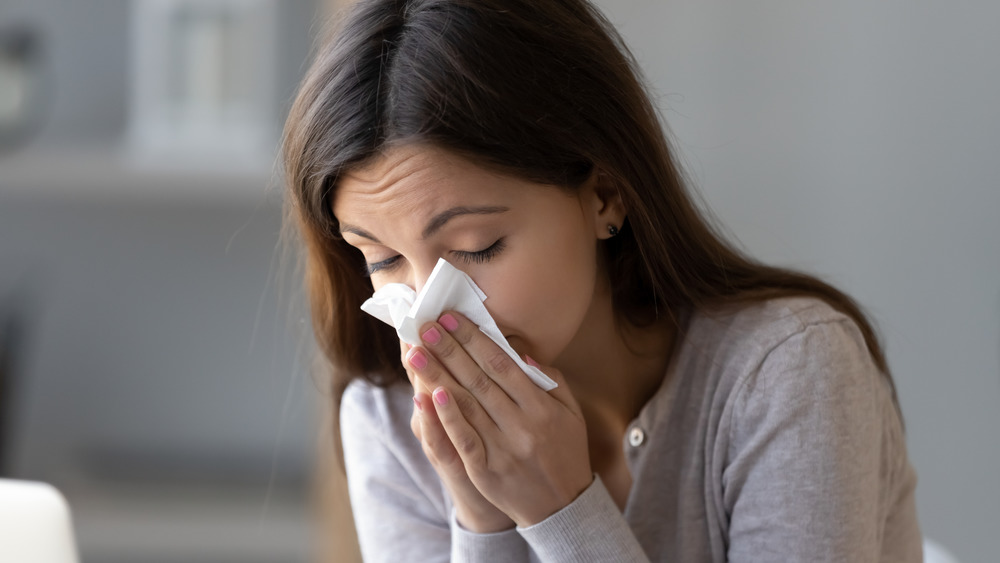You Might Be Allergic To Air Conditioning If This Happens To You
When the summer sun is blazing, we break out the air conditioner to keep the air circulating. If the high amounts of the spring pollen have dwindled, but you still find yourself with allergy type symptoms, your air conditioner may actually be to blame. According to Healthline, air conditioners can circulate pollen, dust, dirt, and other allergens through the air — which can cause your allergies to flare. If left unattended, pollen tracked in by clothing or that's been sitting on the windowsill, can begin moving through the air with the breeze of the air conditioner — as can dust mites and pet dander.
According to WebMD, about 20 million people are allergic to dust mites, the microscopic bugs living in your home that thrive in warm, humid conditions. Having a dust allergy can make it seem like you have a chronic cold, and you may even experience asthma-like symptoms. Airborne allergy symptoms include sniffling, watery or itchy eyes, sneezing, and fatigue (via Mayo Clinic).
Unfortunately, there are times where more than just dust is flowing through your air conditioning unit. Toxins such as mold and mildew may grow inside the unit, which can then be emitted into the air you breathe. This can cause an allergic reaction or even pulmonary disease. Mark Mendell, Ph.D., tells Consumer Reports that having a moldy air conditioner "would increase your chances of having a respiratory infection."
What to do when the air conditioner is causing allergic reactions
According to Healthline, if you suspect you are having a reaction to your air conditioner, you should begin by treating your living space. Start by using HEPA filters, which can remove 99.97 percent of contaminants like dust, mold, bacteria, and pollen. These filters can be used in air purifiers, some air conditioning units, and in vacuums in which they help to release less microscopic particles back into the air during use (via WebMD). Other ways to treat your home include cleaning the vents and air ducts, getting an air purifier, and having your air conditioner professionally cleaned and inspected.
Eliminating dust completely from your environment is not probable, according to the Asthma and Allergy Foundation of America (AAFA), so you may need to treat your allergies with OTC medicine such as antihistamines, nasal corticosteroids, or decongestants. In more serious cases, allergy shots, or immunotherapy, is an option that can provide better relief.
If you find yourself struggling with allergy symptoms with little relief from the mentioned methods, or if you seem to be getting worse, it is important to see a doctor to discuss your symptoms and your concerns.


